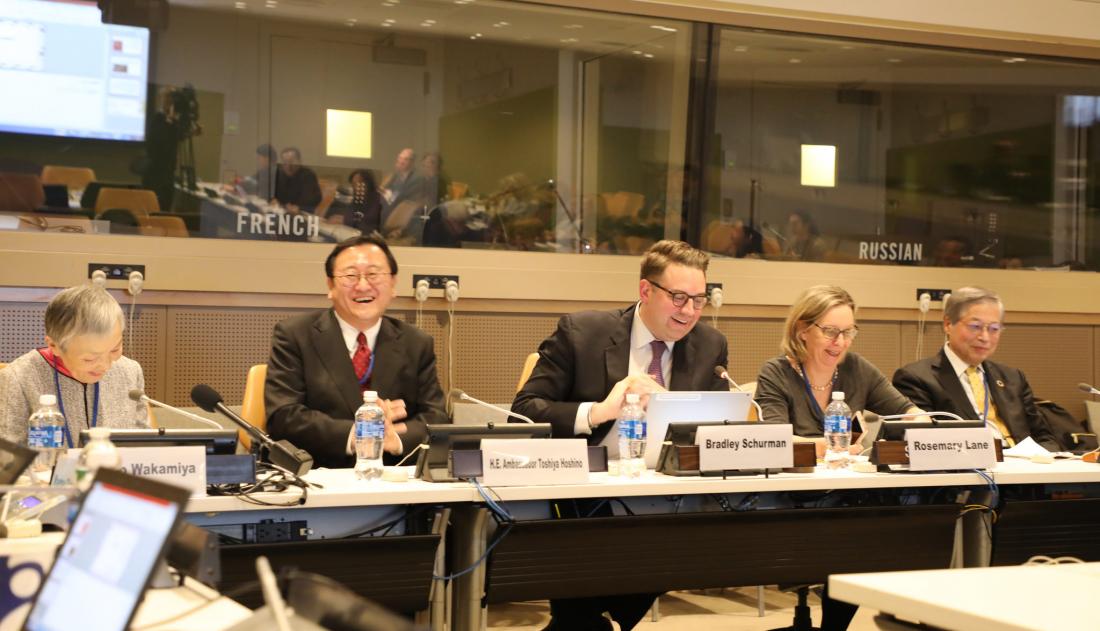
UNDESA's Division for Social Policy and Development (DSPD), in partnership with the Japan Ministry of Internal Affairs and Communication, the Permanent Mission of Japan to the United Nations, Waseda University in Japan, and the NGO Committee on Ageing organized a side event during the 56th Commission for Social Development (CSocD56), on digital skills for older persons at UN Headquarters in New York, on 2 February 2018.
“Digital skills can be effective for senior citizens to feel empowered and in control of their own lives. Digital skills help our relationships with our families, our communities and even beyond. They also help seniors to socialize, ease the pain of being alone and be creative", said Ms. Masako Wakamiya, an 82-year-old Japanese software programmer.
The event explored why digital skills are vital for older persons to participate in their societies and to better access public and private services. The lack of access to technology can marginalize older persons from the mainstream of development, undermining their economic and social roles and weakening their traditional sources of support. Experts highlighted the potential of innovation and technology regarding improving the quality of their lives, creating jobs, facilitating their health care and daily activities.
"Digital skills are critical for older persons because many of our daily activities - such as online learning, shopping, banking and access to public services- require interaction with technology,” said Ms. Rosemary Lane, Senior Social Affairs Officer, UNDESA/DSPD.
"Digital technologies shouldn't be only barriers for older persons and can enrich their quality of life if they're able to make use of them,” said H.E. Ambassador Toshiya Hoshino, Deputy Permanent Representative of Japan to the United Nations.
Experts called for collaboration between governments and corporate entities in raising funds, sharing knowledge, and creating more practical and user-friendly learning projects, to engage older persons in digital societies, and empower them to end poverty and social exclusion.
"This requires a shared understanding of older persons’ values, abilities and goals to co-create environments that are supportive for learning and using technology”, said Ms. Rosalie Wang from the University of Toronto.
"Big Data, AI and the creation of life support businesses for a smart silver city will be critical for older persons," said Dr. Toshio Obi from Waseda University, Japan. He recommended life-long learning to acquire digital skills and new job styles such as telework, silver venture and a cross-border workplace for older persons.
Ms. Marisa Giorgi from the Older Adults Technology Services (OATS) highlighted the power of technology to change the way we age. She explained how technology adoption for older persons requires participant-driven learning and how digital tools can help them plan their budget.
To learn more about this event, please visit: http://bit.ly/csocd56-digital-skills-ageing
To learn more about the CSocD56, please visit: http://bit.ly/un-csocd56
 Welcome to the United Nations
Welcome to the United Nations


